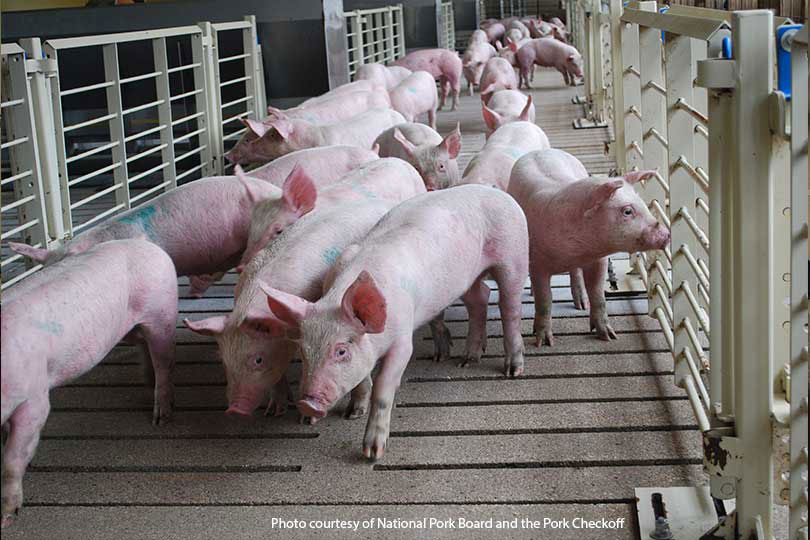By Justin Walker
Communications Specialist
African Swine Fever (ASF) is the number one concern for animal safety right now for the National Pork Producers Council.
ASF continues to spread throughout Asia, Southeast Asia and Eastern Europe right now, impacting the pork industry worldwide, Dr. Dan Kovich, director of Science and Technology for the National Pork Producers Council, said.
“We are taking very careful looks at everything we can do as an industry, partnering with government and others to protect ourselves,” Kovich said in an interview with the Texas Farm Bureau Radio Network.
While the disease has not reached North America, Asia is the source of some of the feed products for the U.S., so Kovich and others continue to monitor the situation.
U.S. farmers and ranchers should still take precautions within their operations to prevent the spread to America, Kovich said.
“Our producers have some of the best security in the world, so most of what they are doing is right on target,” he said. “I would definitely encourage producers to pay careful attention if they are having any visitors from overseas.”
Hog farmers should know where any visitors have been and if they have had any contact with farms in infected area.
China has been significantly impacted by the spread of ASF, Kovich said. The country is home to roughly 50 percent of the world’s pig population, and recent reports estimate 40 percent of China’s herd have been infected.
“That is just a huge, almost unfathomable, number of pigs,” he said. “It’s having a huge impact on their domestic supply and international trade.”
Pork is the country’s top source of protein, and the industry has taken a hit, Kovich said.
Current trade negotiations with China have impacted the ability to export pork from the U.S., Kovich said.
“Really, what is changing is global dynamics and how animal protein is moving around,” he said. “While we may not be able to send a lot of product directly to China, global demand is really increasing.”

